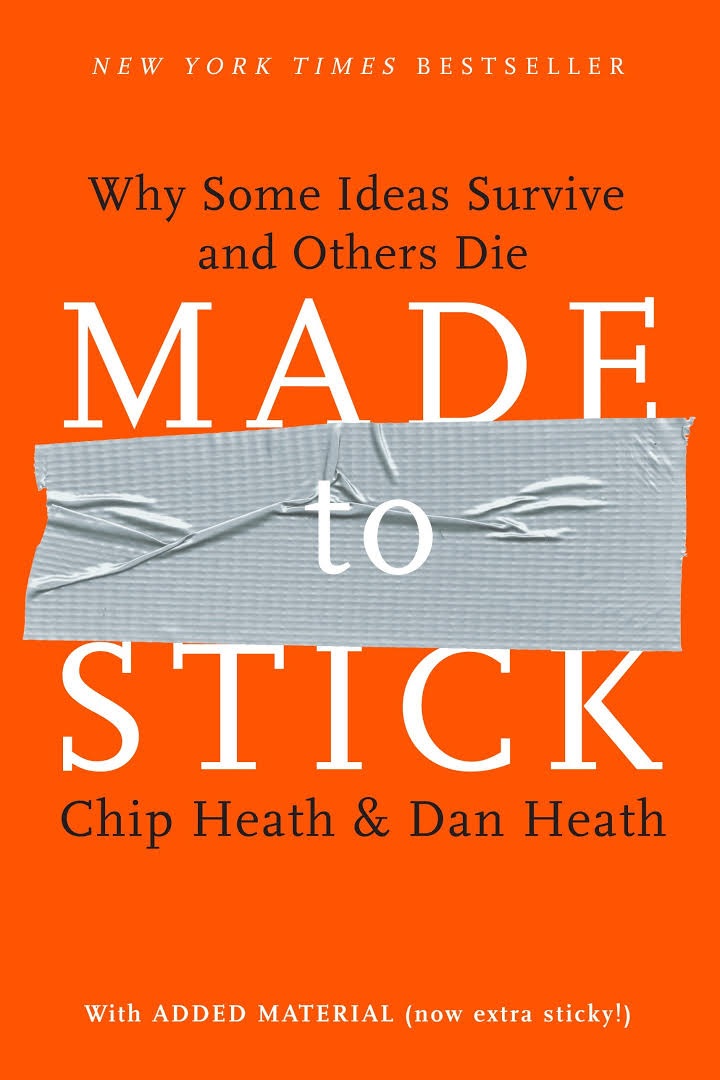Made to Stick – Tappers and Listeners
I read this fascinating thing in Made to Stick:
In 1990, Elizabeth Newton earned a Ph.D. in psychology at Stanford by studying a simple game in which she assigned people to one of two roles: “tappers” or “listeners.” Tappers received a list of twenty-five well-known songs, such as “Happy Birthday to You” and “The Star-Spangled Banner.” Each tapper was asked to pick a song and tap out the rhythm to a listener (by knocking on a table). The listener’s job was to guess the song, based on the rhythm being tapped. (By the way, this experiment is fun to try at home if there’s a good “listener” candidate nearby.)
The listener’s job in this game is quite difficult. Over the course of Newton’s experiment, 120 songs were tapped out. Listeners guessed only 2.5 percent of the songs: 3 out of 120.
But here’s what made the result worthy of a dissertation in psychology. Before the listeners guessed the name of the song, Newton asked the tappers to predict the odds that the listeners would guess correctly. They predicted that the odds were 50 percent.
The tappers got their message across 1 time in 40, but they thought they were getting their message across 1 time in 2. Why?
When a tapper taps, she is hearing the song in her head. Go ahead and try it for yourself—tap out “The Star-Spangled Banner.” It’s impossible to avoid hearing the tune in your head. Meanwhile, the listeners can’t hear that tune—all they can hear is a bunch of disconnected taps, like a kind of bizarre Morse Code.
In the experiment, tappers are flabbergasted at how hard the listeners seem to be working to pick up the tune. Isn’t the song obvious? The tappers’ expressions, when a listener guesses “Happy Birthday to You” for “The Star-Spangled Banner,” are priceless: How could you be so stupid?
It’s hard to be a tapper. The problem is that tappers have been given knowledge (the song title) that makes it impossible for them to imagine what it’s like to lack that knowledge. When they’re tapping, they can’t imagine what it’s like for the listeners to hear isolated taps rather than a song. This is the Curse of Knowledge. Once we know something, we find it hard to imagine what it was like not to know it. Our knowledge has “cursed” us. And it becomes difficult for us to share our knowledge with others, because we can’t readily re-create our listeners’ state of mind.
The tapper/listener experiment is reenacted every day across the world. The tappers and listeners are CEOs and frontline employees, teachers and students, politicians and voters, marketers and customers, writers and readers. All of these groups rely on ongoing communication, but, like the tappers and listeners, they suffer from enormous information imbalances. When a CEO discusses “unlocking shareholder value,” there is a tune playing in her head that the employees can’t hear.
It’s a hard problem to avoid—a CEO might have thirty years of daily immersion in the logic and conventions of business. Reversing the process is as impossible as un-ringing a bell. You can’t unlearn what you already know. There are, in fact, only two ways to beat the Curse of Knowledge reliably. The first is not to learn anything. The second is to take your ideas and transform them.
